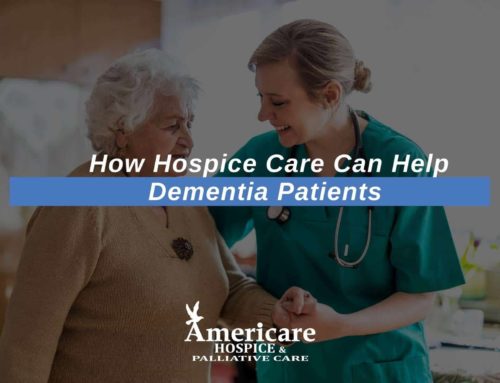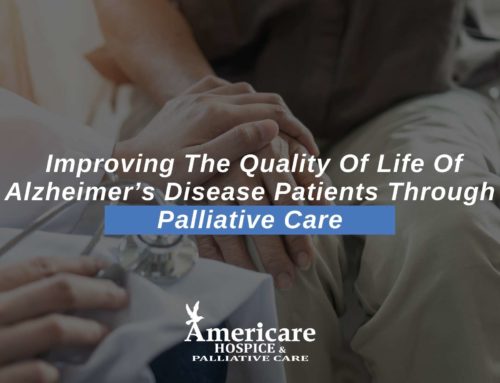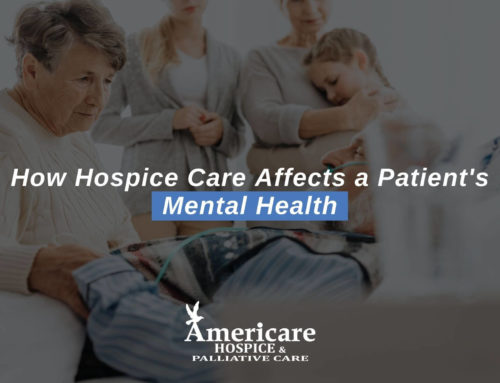What exactly is palliative care?
If you’re considering a hospice in the Gilbert area of 85297 and 85298 or have a loved one battled a chronic or life-threatening disease, chances are you’ve heard of palliative care quite a bit. But what exactly is palliative care, and how can it help someone dealing with a potentially fatal illness? Let’s look at the facts.

The definition of palliative care
Palliative care is a type of home care that provides treatment to patients with life-limiting or chronic illnesses. Hospice care always includes palliative care, while palliative care by itself can be provided outside of hospice. Palliative care focuses on the management of symptoms including pain, discomfort, depression, anxiety, nausea, stress, breathing problems, fatigue, sleeping, or eating. Palliative care is often administered where the patients live, at home or in an assisted living home, as opposed to in a hospital. Palliative care differs from hospice care in it is usually administered to patients at all stages of illness and isn’t limiting to patients still seeking a cure for their illness.
Outside of hospice, palliative care will include doctors, nurse practitioners, nurses, and social workers to help improve the patient’s comfort. A customized palliative care plan can be constructed with loved ones and the patient to meet their emotional, physical, and mental needs.
What is the difference between hospice care and palliative care?
A hospice program is usually designed for patients facing the end of their life. Hospice programs exist in a greater volume than palliative care programs. In most cases, those enrolled in hospice care receive their hospice treatment in their own home, but hospice care facilities are also popular. A hospice program features a team of nurses, physicians, and spiritual counselors that cater to the patient’s religious beliefs. Caregivers and in-home nurses are sometimes employed by patients/families around the clock to properly care for the patient in hospice care. The focus of Ahwatukee hospice care is the relief of symptoms and the emotional care of those facing the end of their lives. Generally, one must be considered terminally ill or within half a year of death to be eligible for hospice programs. This usually depends on insurance companies rather than the hospice facility.
Palliative care programs feature a mostly medical team and care is usually administered in the home in a consultative manner. It can also be provided within the long term care facility or an assisting living facility. Palliative care focuses on relieving illness-related symptoms but do not focus entirely on preparing a patient for the end of their life. Instead, focus is mostly on the reduction of pain and discomfort as well as complimentary treatment to a cure-related treatment program.
How do I know if my loved one is ready for palliative care?
Many factors play into whether it is time to look into palliative care or not. Consider several questions:
- What does my loved one want? This is the most important. Your loved one deserves a say in their path through treatment. However, sometimes someone cannot consent to treatment. Consider what would be best for the life and comfort of your loved one when considering palliative care.
- Are their options available for treatment that are promising and accessible? Palliative care sometimes isn’t necessary if there are other care programs that cater to your loved one’s specific illness. However, palliative care can always be administered in conjunction with a cure-related treatment. Palliative care does not equal hospice care!
- What options do I have for symptom control? Are there other methods of controlling your loved one’s symptoms that may suit them better? Does your loved one even have severe symptoms that need to be under control for their well-being or comfort? Sometimes, palliative care may not be needed for symptom control.
- What is the common or natural course of the illness? Life-threatening, life-limiting, and chronic illnesses can be mutually exclusive. If a loved one is near the end of their life and there’s little chance for recovery, hospice care may be preferable to palliative care. However, palliative care may be preferred for a chronic illness that is not immediately life-threatening.
Where can I find quality palliative care in Arizona?

Published By:
1212 N. Spencer St., Suite #2
Mesa, Arizona 85203
Office: (480) 726-7773
Fax: (480) 726-7790
Email: info@americarehospice.org





